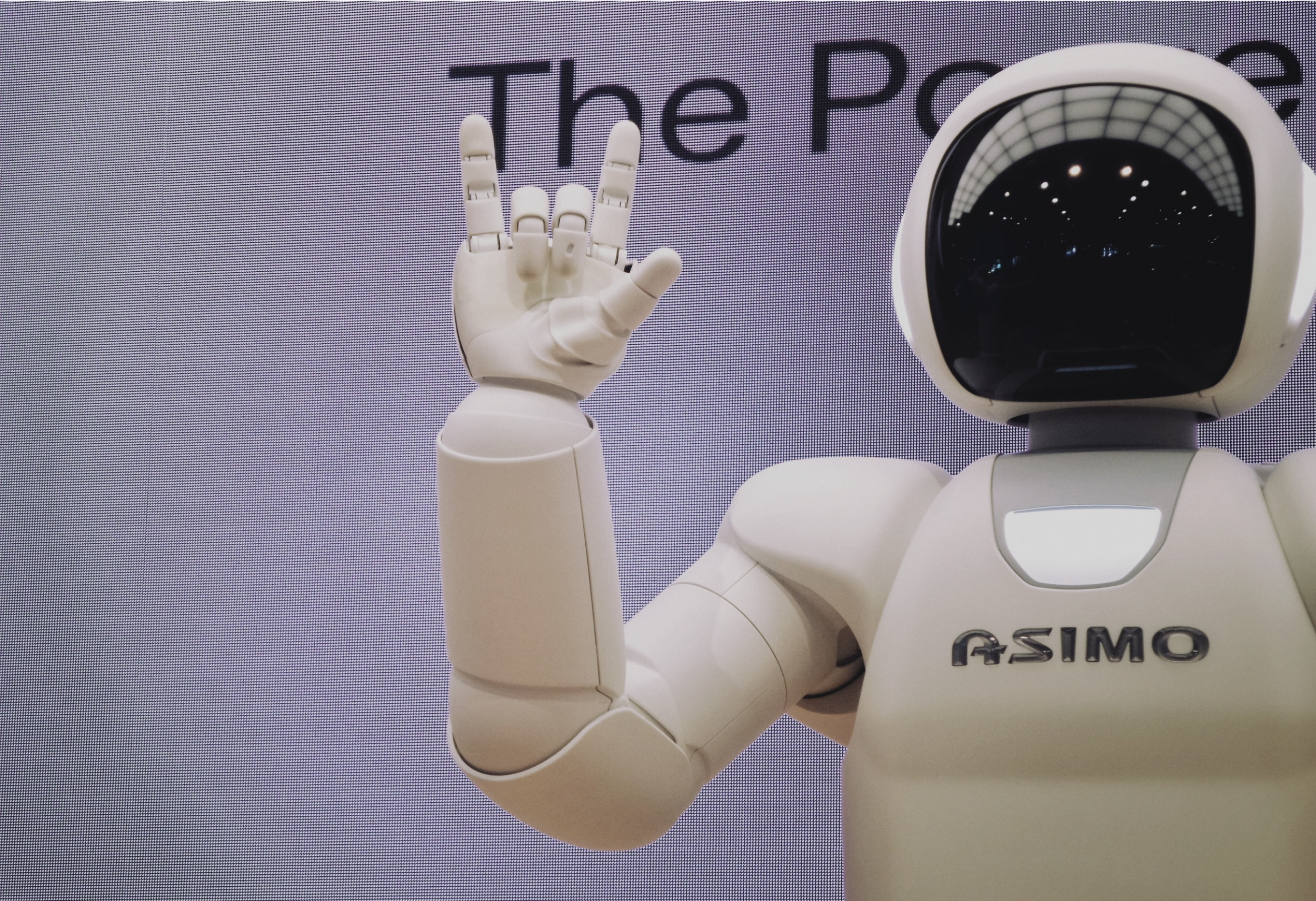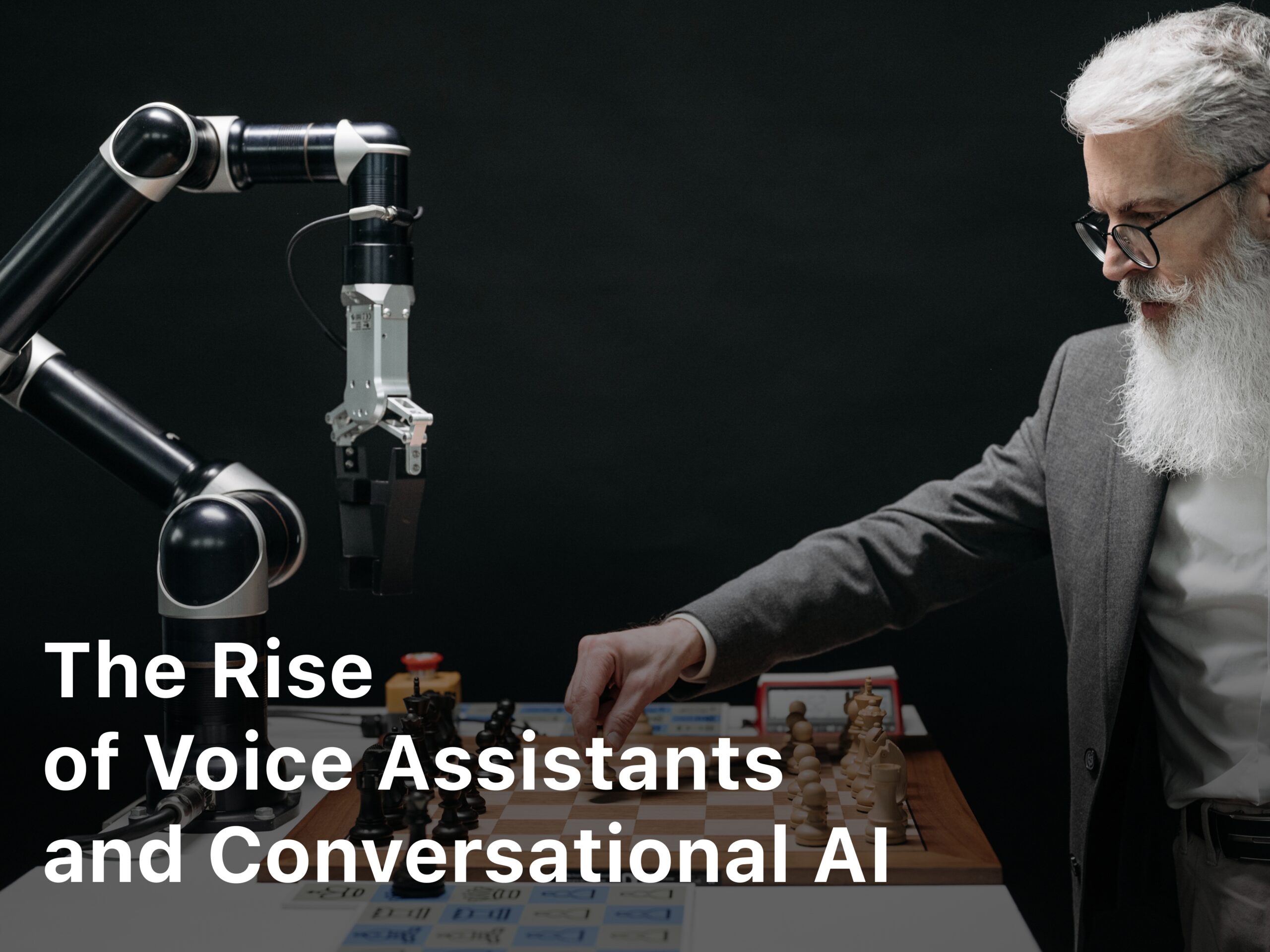The Rise of Voice Assistants and Conversational AI
Have you noticed how much more natural and human-like digital assistants have become lately? Whether it’s Siri suggesting a quicker route home or Alexa turning on the lights when your hands are full, Voice assistants and conversational are seamlessly integrating into our daily lives. The technology behind these AI systems is advancing at an incredible pace. Conversational AI, which allows for more natural and engaging dialog between humans and bots, is transforming how we interact with technology.
Within the next few years, voice assistants and chatbots will become far more sophisticated, handling complex tasks and holding life-like conversations as if speaking with another person. Virtual assistants may soon schedule your appointments, help with homework, or even offer emotional support when you need it. The rise of voice assistants and conversational AI is radically changing how we live and work. Buckle up – the future is here, and it sounds more human than ever before.
The Rapid Growth of Voice Assistants Like Alexa and Siri
Voice assistants like Alexa, Siri and Google Assistant have exploded onto the scene in recent years and changed how we interact with technology. Their rise has been nothing short of meteoric.
According to surveys, nearly half of Americans now own a smart speaker and use a voice assistant. The global smart speaker market is expected to be worth over $30 billion by 2024.
- Voice assistants are convenient. You can ask them to play music, set timers and reminders, get weather and traffic updates, and control smart home devices with just the sound of your voice. No more fumbling around with apps or touchscreens.
- They’re getting smarter all the time. Voice assistants use artificial intelligence and machine learning to better understand natural language and handle more complex requests. They can now perform web searches, give recommendations, and even have basic conversations.
- Voice assistants may soon act as a central hub to control all your connected devices. Imagine being able to say “Alexa, I’m going to bed” and having your voice assistant lock the doors, turn off the lights, turn down the thermostat, and play relaxing music. The future is exciting!
While voice assistants still have limitations, their potential to enhance and simplify our daily lives is huge. No wonder they’ve experienced such rapid growth and popularity. The voice assistant revolution has only just begun. Buckle up, the best is yet to come!
What Is Conversational AI and How Does It Work?
So what exactly is conversational AI and how does it work? Conversational AI, or chatbots, are software programs that can have realistic conversations with humans via text or voice. They use artificial intelligence and machine learning to understand language and respond appropriately.
Chatbots are powered by Natural Language Processing (NLP) and Natural Language Understanding (NLU). NLP allows the chatbot to analyze the words and phrases you use, while NLU helps it understand the intent and meaning behind them. The chatbot has been trained on thousands of human conversations and responses so it can determine the best way to respond to you.
Some chatbots are fairly basic, with limited, pre-written responses. More advanced chatbots, like voice assistants, have been trained on huge datasets and use neural networks to generate original responses tailored to each user interaction. They get smarter over time by learning from every conversation.
The key to conversational AI is its ability to understand context – the topic and intent behind what you’re saying. Chatbots don’t just provide generic responses, they determine what information is most relevant to share based on the current conversation. The ultimate goal is for the experience to feel natural, as if you’re speaking with another person.
Conversational AI has come a long way in recent years and will only continue to improve. Voice assistants like Siri, Alexa and Google Assistant show the exciting potential for how chatbots can transform how we live, work, shop and interact. The future is here, and AI and humans are now conversing on a massive scale. Pretty cool, huh?
Top Applications of Voice Assistants and Conversational AI
Voice assistants and conversational AI have become ubiquitous in our daily lives, with many useful applications.
Smart Speakers
Smart speakers like the Amazon Echo and Google Home have brought voice assistants into our homes. You can ask these devices to play music, set timers and alarms, control smart home devices, provide weather and news updates, and more. The conversational abilities of voice assistants powering smart speakers continue to expand.
Virtual Assistants
Many companies now offer virtual assistants to help with various tasks. For example, Anthropic’s Claude can handle scheduling meetings, Zoom calls, emails and to-do lists. Anthropic PBC’s Claude was created using techniques like Constitutional AI to ensure it behaves ethically.
Customer Service
Voice assistants and chatbots are handling an increasing volume of customer service queries. They can answer simple questions, handle account management requests like updating contact information or shipping addresses, process returns or refunds and more. Companies like Anthropic and Anthropic PBC are working to develop conversational AI systems for customer service that are not just functional but also empathetic, inclusive and helpful.
Accessibility
For people with disabilities like limited mobility, blindness or low vision, voice assistants provide a helpful way to interact with technology and accomplish tasks that might otherwise be challenging. Voice assistants can read text, identify objects, control environmental equipment like lights or thermostats, play media and more using just voice commands.
The applications of voice assistants and conversational AI will only continue to expand. While human values must remain at the core of their development, these technologies promise to make information and tasks more accessible to all.
Benefits of Voice Assistants and Conversational AI
Voice assistants and conversational AI are changing the way we interact with technology. As these systems continue to improve, the benefits to both businesses and individuals keep growing.

Increased Productivity
Voice assistants can help streamline many everyday tasks like managing schedules, setting reminders, controlling smart home devices, and more. By offloading some of these routine jobs to an AI, you have more time and mental capacity to focus on more important work.
Improved Customer Service
Conversational AI is transforming customer service. Chatbots and voice assistants can handle many simple and repetitive customer queries on their own. This reduces wait times for customers and frees up human agents to handle more complex issues. Bots are also available 24/7, so customers can get help anytime.
Personalized Experiences
AI systems get to know you and your preferences over time through the conversations you have. They can then provide tailored responses, content, product recommendations, and more based on your unique needs and interests. This type of personalization leads to a better overall experience for users.
Related Article : How can AI be used to improve SEO and increase web site traffic?
Expanded Accessibility
Voice assistants and chatbots make technology more accessible to people who cannot easily use visual interfaces. Those who are visually impaired, disabled, elderly or illiterate can benefit from AI systems that can understand speech and respond via voice. This helps more people take advantage of services that might otherwise be difficult to access.
While AI will not replace human intelligence completely, voice assistants and conversational systems are changing the way we live and work every day. As they continue to evolve, these technologies will transform both business and personal productivity and open up new opportunities for enhanced customer experiences. The future looks bright for the partnership between humans and machines.
The Future of Voice Assistants: What’s Next for This Technology?
The world of voice assistants is rapidly evolving. As the technology improves, voice assistants are getting smarter, expanding into new areas of life and integrating more deeply with our daily routines.
Smarter Assistants
Voice assistants like Siri, Alexa and Google Assistant are becoming more intelligent over time. They are getting better at understanding natural language, handling complex requests and even understanding some contextual details about users and their preferences or routines. Soon, voice assistants may start to anticipate our needs, make personalized suggestions and have more complex, multi-turn conversations.
New Domains
Voice assistants started in fairly simple use cases like setting timers, playing music or controlling smart home devices. Now, they are expanding into new areas like healthcare, education, automotive and more. For example, voice assistants could help patients track medications or symptoms, assist students with homework questions or control vehicle entertainment and navigation systems. The potential use cases for voice assistants are vast.
Deeper Integration
As voice assistants get smarter and expand into new areas of life, they will also integrate more tightly with our daily activities and environments. Voice assistants may start to proactively make suggestions based on our location, health data or daily schedules. Virtual assistants could also integrate with augmented and virtual reality technologies, smart home devices, vehicles and more to create a seamless connected experience across domains.
The future of voice assistants and conversational AI is bright. These technologies are poised to transform nearly every aspect of our lives as they get more advanced, expand into new areas and integrate more deeply into our daily experiences. While still emerging, voice assistants and the rise of conversational AI may ultimately make many of our interactions and routines more efficient, personalized and seamless. The possibilities are endless.
Conclusion
So there you have it, conversational AI and voice assistants are rapidly advancing and becoming a major part of our daily lives. Whether through your smart speaker, smartphone, or other devices, AI is enabling more natural ways for us to get things done and interact with the digital world. The technology still has a long way to go to match human conversation, but companies are pouring resources into developing systems that can understand nuance, personality, and make conversations feel truly personal. Voice is emerging as the next key platform for brand experiences, and conversational AI may ultimately transform how we connect with friends, family, and the businesses we care about. The future is voice, and it’s an exciting time to see how this technology will continue to evolve and shape our everyday experiences.




